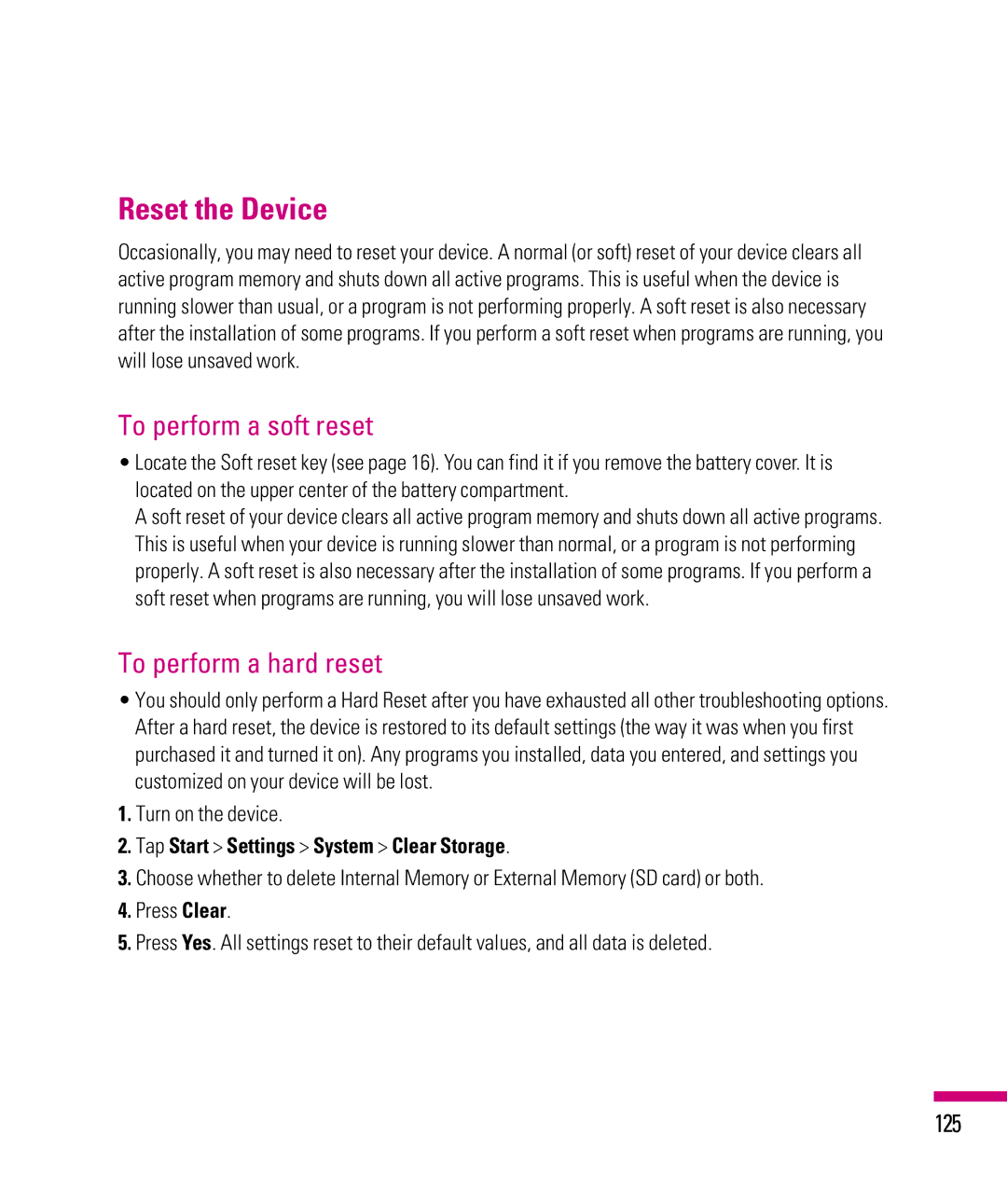Reset the Device
Occasionally, you may need to reset your device. A normal (or soft) reset of your device clears all active program memory and shuts down all active programs. This is useful when the device is running slower than usual, or a program is not performing properly. A soft reset is also necessary after the installation of some programs. If you perform a soft reset when programs are running, you will lose unsaved work.
To perform a soft reset
•Locate the Soft reset key (see page 16). You can find it if you remove the battery cover. It is located on the upper center of the battery compartment.
A soft reset of your device clears all active program memory and shuts down all active programs. This is useful when your device is running slower than normal, or a program is not performing properly. A soft reset is also necessary after the installation of some programs. If you perform a soft reset when programs are running, you will lose unsaved work.
To perform a hard reset
•You should only perform a Hard Reset after you have exhausted all other troubleshooting options. After a hard reset, the device is restored to its default settings (the way it was when you first purchased it and turned it on). Any programs you installed, data you entered, and settings you customized on your device will be lost.
1.Turn on the device.
2.Tap Start > Settings > System > Clear Storage.
3.Choose whether to delete Internal Memory or External Memory (SD card) or both.
4.Press Clear.
5.Press Yes. All settings reset to their default values, and all data is deleted.
